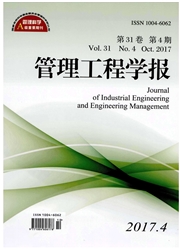

 中文摘要:
中文摘要:
将中国新股发行锁定制度纳入Derrien的承销商价格稳定模型,对其进行了扩展,在询价制下分析投资者情绪对IPO价格形成机理的影响并进行了数值分析。研究表明:面对投资者的过度乐观情绪,一方面承销商会利用投资者情绪拔高发行价,获得更多的承销收入;另一方面出于维护声誉的考虑,承销商又抑制了其对投资者情绪的过度利用,只有部分乐观情绪反映到IPO定价中。在投资者过度乐观情绪下,高发行价与抑价并存,IPO长期表现弱势,抑价是对机构投资者锁定期内持股的流动性风险补偿,且抑价与投资者情绪的乐观程度正相关,与机构投资者配售比例正相关。本文的研究为新股发行体制改革的部分举措提供了理论支撑。
 英文摘要:
英文摘要:
The China Securities Regulatory Commission issued a new regulation on securities issuance and underwriting on December 13, 2013. On majorconcern about the regulation was the introduction of lead underwriters discriminatory allocation mechanisms. Previous studies show that under thediscriminatory allocation mechanism, lead underwriters can obtain the intrinsic value information of the issuer by inducing institutional investors possessingprivate information to "tell the truth." However, there are two basic assumptions in these studies: (1) the maximization of expected revenue of issuer is used as objective, and (2) transactionprice in secondary market should reflect the intrinsic value of new shares. However, the two assumptions are constantly questioned. First, underwriters areinterest subjects and pursue their own expected revenue maximization. Second, there are a mass of sentimental traders (retail investors) in the market, makingthe security price deviate its intrinsic value in short term or even longer. Our research question is to price IPO under the condition of underwriters pursuing themaximum of their own interests and sentimental traders in secondary market. By combining issue features of new shares in China, this paper extends price support model established by Derrien, builds an underwriter expected revenuemodel in book-building, and analyzes the effects of investors' sentiment on IPO pricing. First, it gives a new connotation for Derrien model. There are twoconditions for Derrien model: (1) Underwriters allocate new issues discriminatorily; and (2) Underwriters bear the price stabilization obligations for new shares.Although introducing discriminatory allocation mechanism during the reform of new share issue system and meeting the condition, there is no clearrequirement for underwriters to stabilize the price when share price is lower than issue price. However, there is a unique institutional investor locking agreementin China. It is the requirements on lock-up period playi
 同期刊论文项目
同期刊论文项目
 同项目期刊论文
同项目期刊论文
 期刊信息
期刊信息
